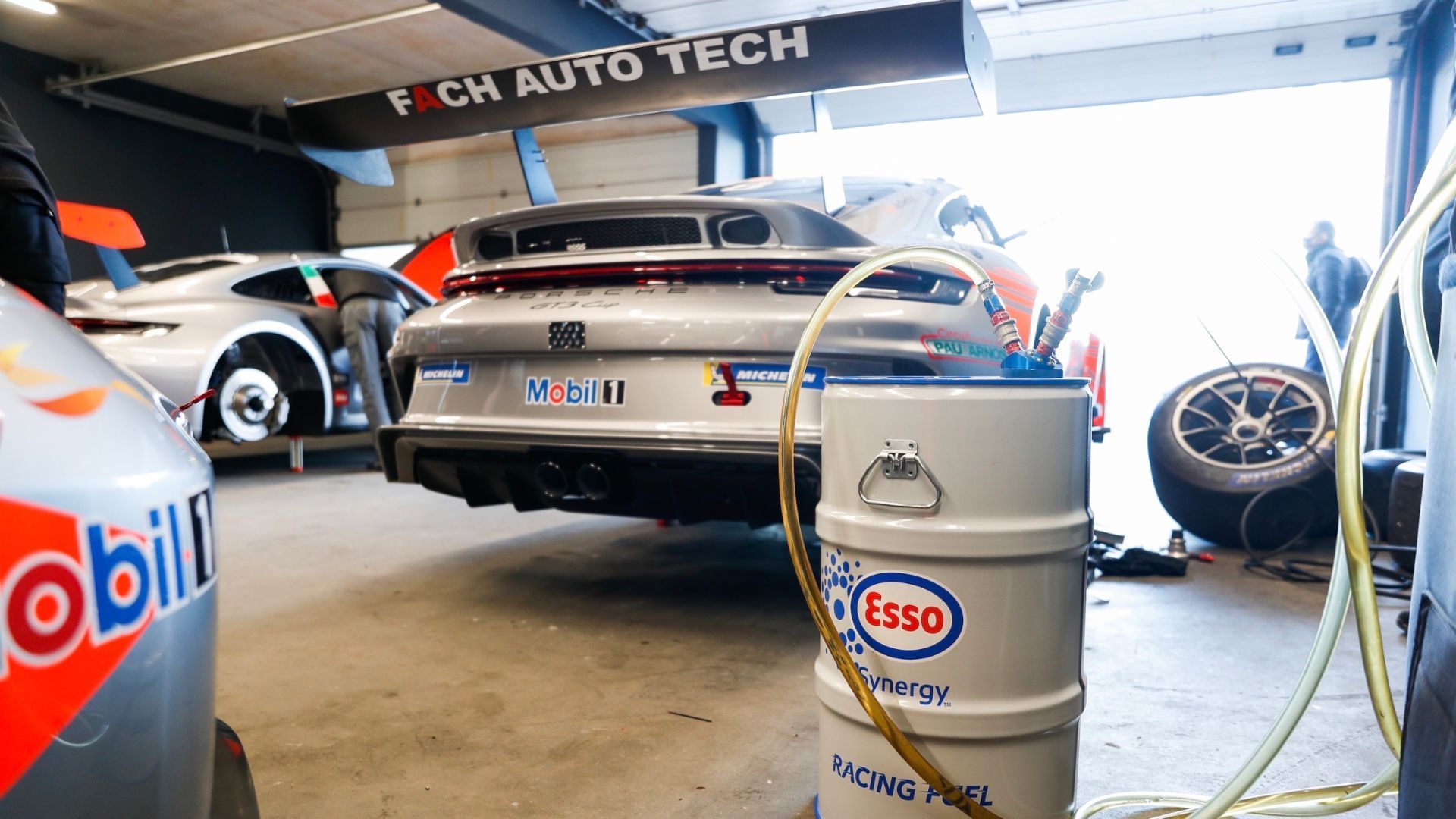Porsche Has Begun Building Its First Synthetic Fuel Plant
The plant will churn out nearly carbon-neutral fuels for use in gas-powered vehicles.














World First
Last year, Porsche revealed its plans to utilize synthetic fuel to make gas-powered cars more environmentally friendly. Now, the reality of this nearly carbon-neutral eFuel is almost upon us, as Porsche and Siemens Energy have begun construction of the world's first integrated eFuel commercial plant in Punta Arenas, Chile.
Photos: Porsche
Staged Production
The pilot plant is expected to produce around 130,000 liters of eFuels starting in 2022. Capacity will then be expanded in two stages to around 55 million liters by 2024, and around 550 million liters by 2026. The necessary environmental permits have now been obtained by the Chilean project company Highly Innovative Fuels (HIF), and Siemens Energy has also already started preparatory work for the next major commercial phase of the project.
Photos: Porsche
>>Join the conversation about Porsche's synthetic fuel right here in the Rennlist forum.
Important Project
"I'm pleased that we're making progress on this international beacon project for the hydrogen economy together with strong international partners from business and politics," said Armin Schnettler, EVP for New Energy Business at Siemens Energy. "With Haru Oni, we're bringing our power-to-X technology to the global market. We're jointly developing and realizing the world's first integrated and commercial large-scale plant for producing synthetic, carbon-neutral fuels. In southern Chile, we're implementing one of the energy industry's most exciting projects for the future and driving forward the decarbonization of the mobility sector. It means we're making an important and rapidly effective contribution to reducing CO2 emissions in the traffic and transport sector."
Photos: Porsche
>>Join the conversation about Porsche's synthetic fuel right here in the Rennlist forum.
Reaching Carbon Neutrality
Porsche initiated the demonstration project and will be using the eFuels in its own combustion engine vehicles. "Porsche was founded with a pioneering spirit," said Michael Steiner, Member of the Executive Board for Research and Development at Porsche AG. "That's what drives us, we thrive on innovation. We also see ourselves as pioneers when it comes to renewable fuels, and we want to drive development forward. This fits in with our clear overall sustainability strategy. It means that Porsche as a whole can be net CO2 neutral as early as 2030."
Photos: Porsche
>>Join the conversation about Porsche's synthetic fuel right here in the Rennlist forum.
Keeping Classics Alive
"Fuels produced with renewable energy can make a contribution to this," Steiner added. "Our icon, the 911, is particularly suited to the use of eFuels. But so are our much-loved historic vehicles, because around 70 percent of all Porsche sports cars ever built are still on the road today. Our tests with renewable fuels are going very successfully. eFuels will make it possible to reduce fossil CO2 emissions in combustion engines by up to 90 percent. Among other things, we'll be using the first fuel from Chile in our Porsche Mobil 1 Supercup racing cars from 2022."
Photos: Porsche
>>Join the conversation about Porsche's synthetic fuel right here in the Rennlist forum.
World Leader
Chile has also set ambitious targets as part of its National Green Hydrogen Strategy. It plans an electrolyzer capacity of 5 gigawatts (GW) by 2025, rising to 25 GW by 2030. The aim is to produce the world's cheapest hydrogen and develop the country into a leading exporter of green hydrogen and its derivatives.
Photos: Porsche
>>Join the conversation about Porsche's synthetic fuel right here in the Rennlist forum.
Group Effort
The Haru Oni project takes advantage of the perfect climatic conditions for wind energy in Magallanes province in southern Chile to produce virtually carbon-neutral fuel using low-cost green wind power. In the first step, electrolyzers split water into oxygen and green hydrogen using wind power. CO2 is then filtered from the air and combined with the green hydrogen to produce synthetic methanol, which in turn is converted into eFuel. The pilot plant is scheduled to start production in mid-2022. In addition to Siemens Energy, Porsche and HIF, Enel, ExxonMobil, Gasco, and ENAP are participating in the Haru Oni project.
Photos: Porsche
>>Join the conversation about Porsche's synthetic fuel right here in the Rennlist forum.
For help with your maintenance and repair projects, please visit our how-to section in the forum.
